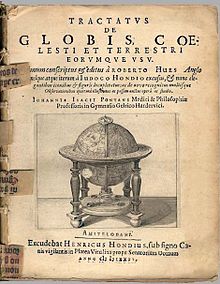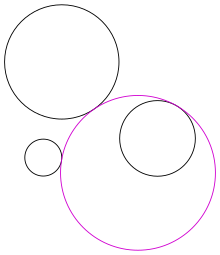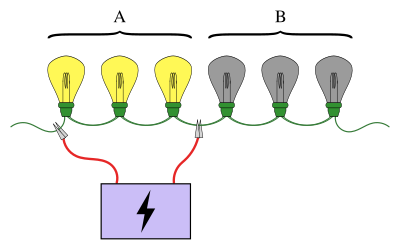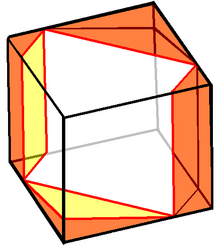
Back በር:ሒሳብ Amharic بوابة:رياضيات Arabic قيسارية:لماط ARY بوابة:رياضيات ARZ Портал:Математика AV پوْرتال:ریاضیات AZB Portal:Matematika BCL Партал:Матэматыка BE-X-OLD Портал:Математика Bulgarian প্রবেশদ্বার:গণিত Bengali/Bangla
The Mathematics Portal
Mathematics is the study of representing and reasoning about abstract objects (such as numbers, points, spaces, sets, structures, and games). Mathematics is used throughout the world as an essential tool in many fields, including natural science, engineering, medicine, and the social sciences. Applied mathematics, the branch of mathematics concerned with application of mathematical knowledge to other fields, inspires and makes use of new mathematical discoveries and sometimes leads to the development of entirely new mathematical disciplines, such as statistics and game theory. Mathematicians also engage in pure mathematics, or mathematics for its own sake, without having any application in mind. There is no clear line separating pure and applied mathematics, and practical applications for what began as pure mathematics are often discovered. (Full article...)
Featured articles –
Selected image –
Good articles –
Did you know (auto-generated) –

- ... that the discovery of Descartes' theorem in geometry came from a too-difficult mathematics problem posed to a princess?
- ... that museum director Alena Aladava rebuilt the Belarusian national art collection in the aftermath of the Second World War?
- ... that according to one critic, the math rock album Cryptooology by Yowie "sounds like an explosion in a Slinky factory"?
- ... that Arithmetic was the first mathematics text book written in the Russian language?
- ... that in the aftermath of the American Civil War, the only Black-led organization providing teachers to formerly enslaved people was the African Civilization Society?
- ... that ten-sided gaming dice have kite-shaped faces?
- ... that despite a mathematical model deeming the ice cream bar flavour Goody Goody Gum Drops impossible, it was still created?
- ... that Fairleigh Dickinson's upset victory over Purdue was the biggest upset in terms of point spread in NCAA tournament history, with Purdue being a 23+1⁄2-point favorite?
More did you know –

- ...that the largest known prime number is nearly 25 million digits long?
- ...that the set of rational numbers is equal in size to the set of integers; that is, they can be put in one-to-one correspondence?
- ...that there are precisely six convex regular polytopes in four dimensions? These are analogs of the five Platonic solids known to the ancient Greeks.
- ...that it is unknown whether π and e are algebraically independent?
- ...that a nonconvex polygon with three convex vertices is called a pseudotriangle?
- ...that it is possible for a three-dimensional figure to have a finite volume but infinite surface area, such as Gabriel's Horn?
- ... that as the dimension of a hypersphere tends to infinity, its "volume" (content) tends to 0?
Selected article –
 |
| In search of a new car, the player picks door 1. The game host then opens door 3 to reveal a goat and offers to let the player pick door 2 instead of door 1. Image credit: Cepheus |
The Monty Hall problem is a puzzle involving probability similar to the American game show Let's Make a Deal. The name comes from the show's host, Monty Hall. A widely known, but problematic (see below) statement of the problem is from Craig F. Whitaker of Columbia, Maryland in a letter to Marilyn vos Savant's September 9, 1990, column in Parade Magazine (as quoted by Bohl, Liberatore, and Nydick).
Suppose you're on a game show, and you're given the choice of three doors: Behind one door is a car; behind the others, goats. You pick a door, say No. 1, and the host, who knows what's behind the doors, opens another door, say No. 3, which has a goat. He then says to you, "Do you want to pick door No. 2?" Is it to your advantage to switch your choice?
The problem is also called the Monty Hall paradox; it is a veridical paradox in the sense that the solution is counterintuitive, although the problem does not yield a logical contradiction. (Full article...)
| View all selected articles |
Subcategories

Algebra | Arithmetic | Analysis | Complex analysis | Applied mathematics | Calculus | Category theory | Chaos theory | Combinatorics | Dynamical systems | Fractals | Game theory | Geometry | Algebraic geometry | Graph theory | Group theory | Linear algebra | Mathematical logic | Model theory | Multi-dimensional geometry | Number theory | Numerical analysis | Optimization | Order theory | Probability and statistics | Set theory | Statistics | Topology | Algebraic topology | Trigonometry | Linear programming
Mathematics | History of mathematics | Mathematicians | Awards | Education | Literature | Notation | Organizations | Theorems | Proofs | Unsolved problems
Topics in mathematics
| General | Foundations | Number theory | Discrete mathematics |
|---|---|---|---|
| |||
| Algebra | Analysis | Geometry and topology | Applied mathematics |
Index of mathematics articles
| ARTICLE INDEX: | |
| MATHEMATICIANS: |
Related portals
WikiProjects
![]() The Mathematics WikiProject is the center for mathematics-related editing on Wikipedia. Join the discussion on the project's talk page.
The Mathematics WikiProject is the center for mathematics-related editing on Wikipedia. Join the discussion on the project's talk page.
In other Wikimedia projects
The following Wikimedia Foundation sister projects provide more on this subject:
-
Commons
Free media repository -
Wikibooks
Free textbooks and manuals -
Wikidata
Free knowledge base -
Wikinews
Free-content news -
Wikiquote
Collection of quotations -
Wikisource
Free-content library -
Wikiversity
Free learning tools -
Wiktionary
Dictionary and thesaurus
More portals
© MMXXIII Rich X Search. We shall prevail. All rights reserved. Rich X Search




















![{\displaystyle \mathbb {Z} [{\tfrac {1}{2}}]}](https://wikimedia.org/api/rest_v1/media/math/render/svg/bc0cd93b7492cdaf8d7d38f960b7f12d4d370eb1)































